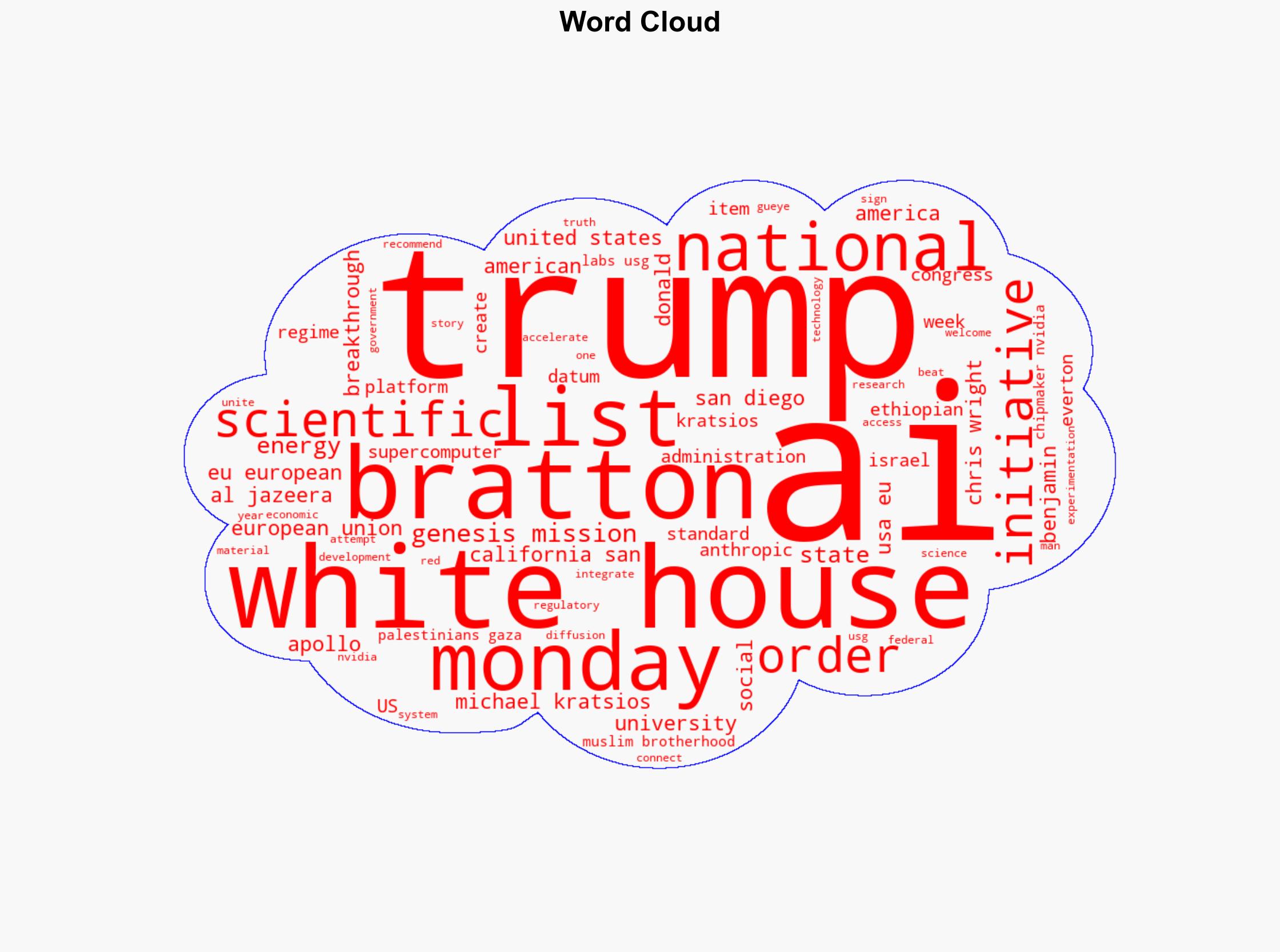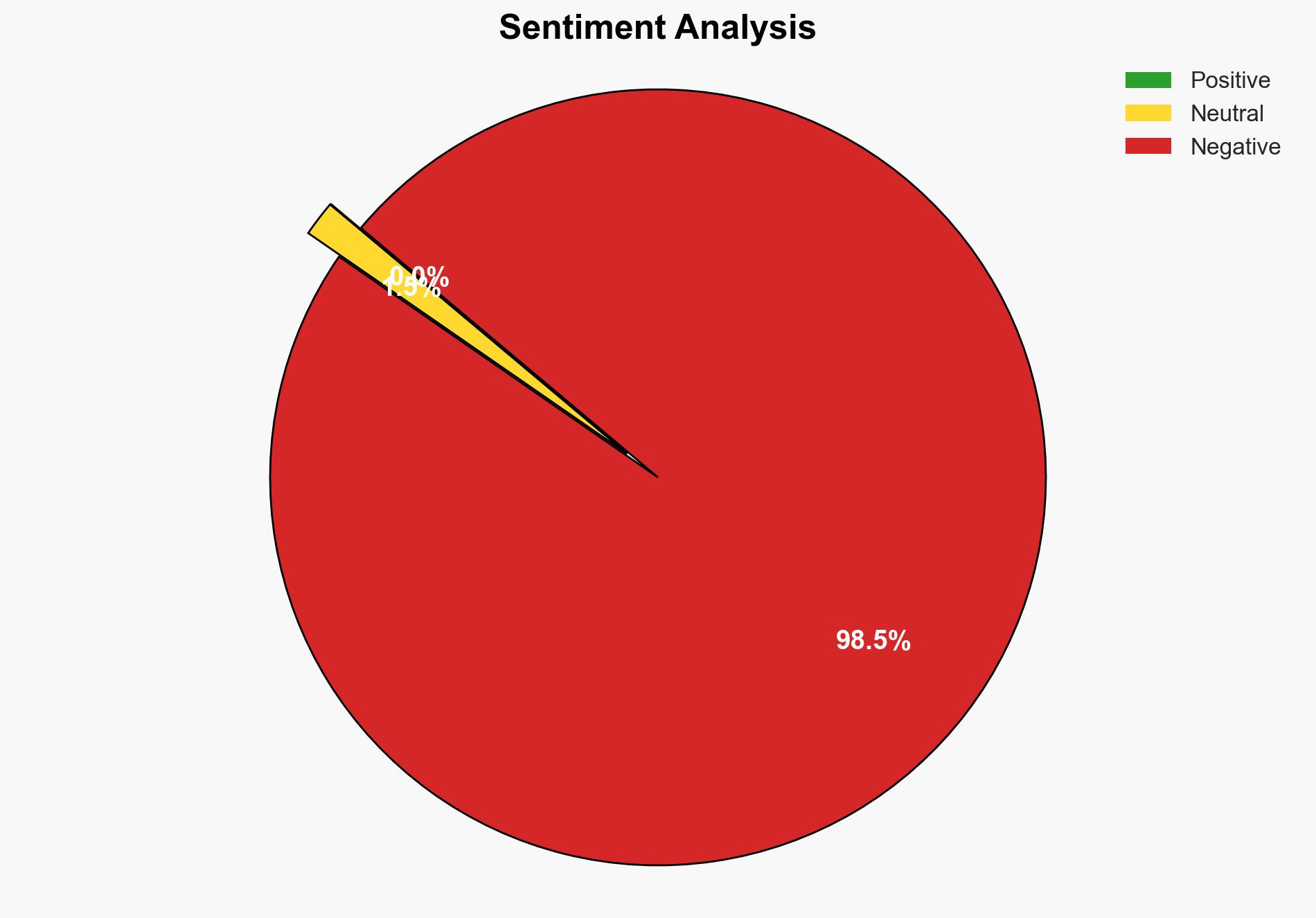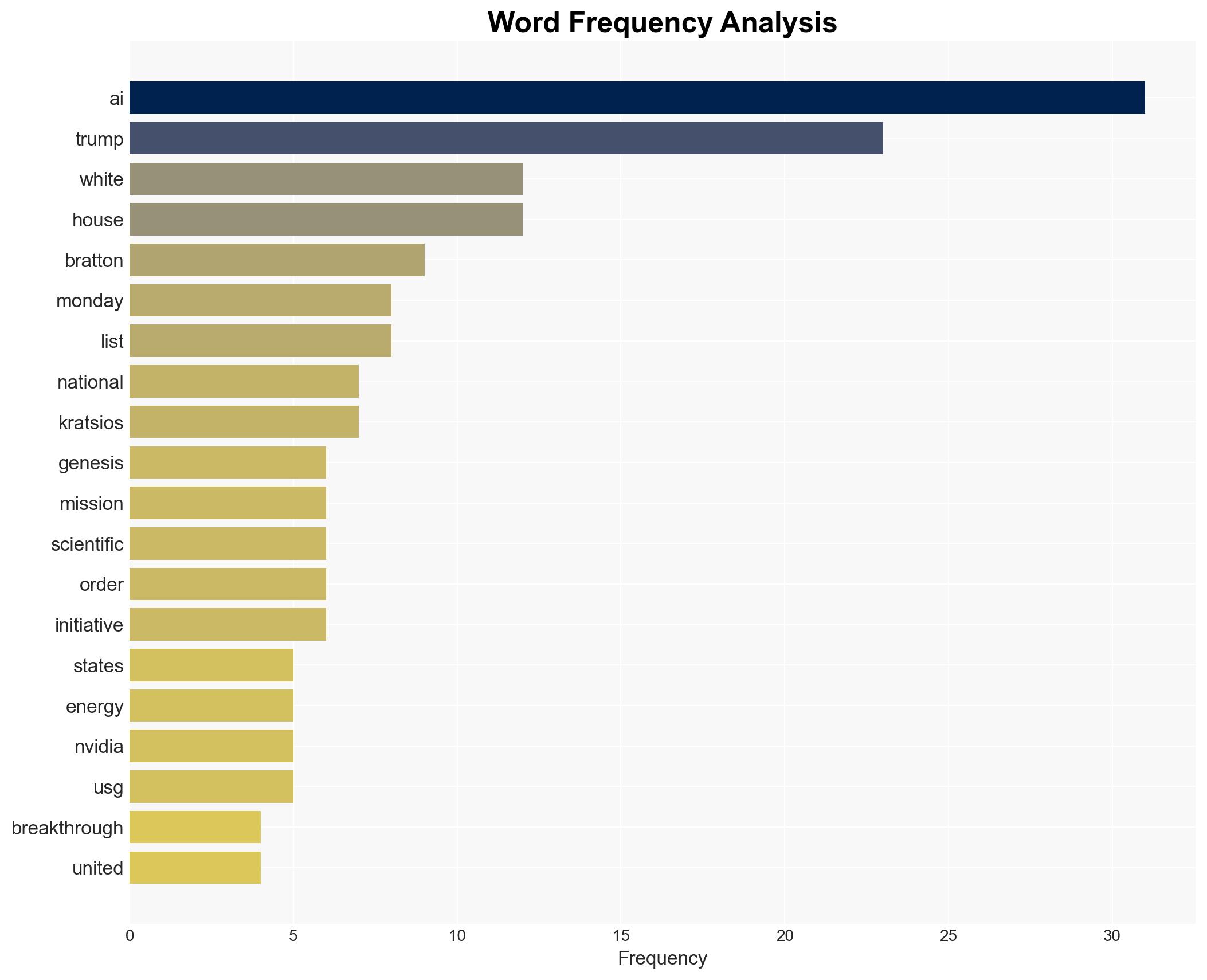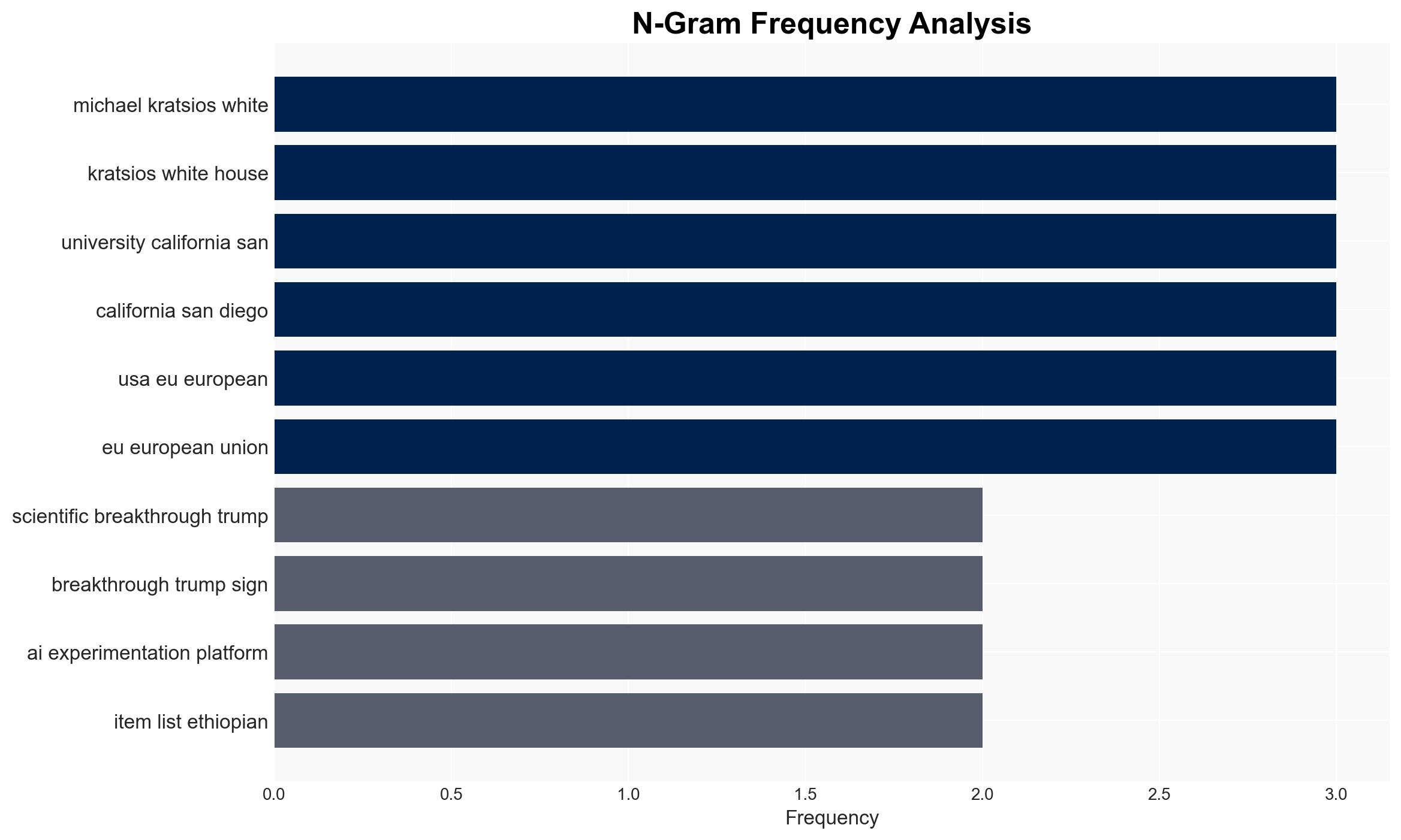Trump launches Genesis Mission to harness AI for scientific breakthroughs
Published on: 2025-11-25
AI-powered OSINT brief from verified open sources. Automated NLP signal extraction with human verification. See our Methodology and Why WorldWideWatchers.
Intelligence Report:
1. BLUF (Bottom Line Up Front)
The Genesis Mission, initiated by Donald Trump, aims to integrate AI with scientific research to drive breakthroughs in various fields. The most supported hypothesis suggests this initiative is primarily an economic strategy to position the U.S. as a leader in AI technology, with a moderate confidence level. Recommended actions include monitoring the initiative’s progress and assessing its impact on global AI leadership dynamics.
2. Competing Hypotheses
Hypothesis 1: The Genesis Mission is a strategic move to bolster U.S. economic growth and technological leadership by leveraging AI for scientific advancements.
Hypothesis 2: The initiative is primarily a political maneuver to consolidate support for Trump’s administration by showcasing a commitment to innovation and deregulation.
Hypothesis 1 is more likely due to the explicit focus on integrating AI with supercomputing and scientific research, which aligns with economic and technological objectives. The involvement of key industry players like Nvidia and the emphasis on deregulation support this hypothesis.
3. Key Assumptions and Red Flags
Assumptions: The U.S. has the necessary infrastructure and expertise to successfully implement the Genesis Mission. The initiative will not face significant political or legal obstacles.
Red Flags: Potential overestimation of AI capabilities, underestimation of regulatory challenges, and possible resistance from states with existing AI regulations.
Deception Indicators: Overly optimistic timelines or outcomes presented without substantial evidence.
4. Implications and Strategic Risks
The Genesis Mission could lead to significant advancements in AI and scientific research, enhancing U.S. competitiveness. However, it may also escalate tensions with countries pursuing their own AI initiatives, potentially leading to an AI arms race. Economically, the initiative could disrupt industries reliant on traditional technologies, necessitating workforce adjustments.
5. Recommendations and Outlook
- Monitor the initiative’s implementation and impact on U.S. technological leadership.
- Engage with international partners to establish cooperative AI development frameworks.
- Best-case scenario: The U.S. achieves significant scientific breakthroughs, enhancing economic growth and global leadership.
- Worst-case scenario: The initiative faces regulatory and political hurdles, leading to minimal impact and wasted resources.
- Most-likely scenario: Incremental advancements in AI and scientific research, with gradual improvements in U.S. competitiveness.
6. Key Individuals and Entities
Donald Trump, Chris Wright, Michael Kratsios, Nvidia, Anthropic
7. Thematic Tags
Structured Analytic Techniques Applied
- Cognitive Bias Stress Test: Expose and correct potential biases in assessments through red-teaming and structured challenge.
- Bayesian Scenario Modeling: Use probabilistic forecasting for conflict trajectories or escalation likelihood.
- Network Influence Mapping: Map relationships between state and non-state actors for impact estimation.
Explore more:
National Security Threats Briefs ·
Daily Summary ·
Support us





